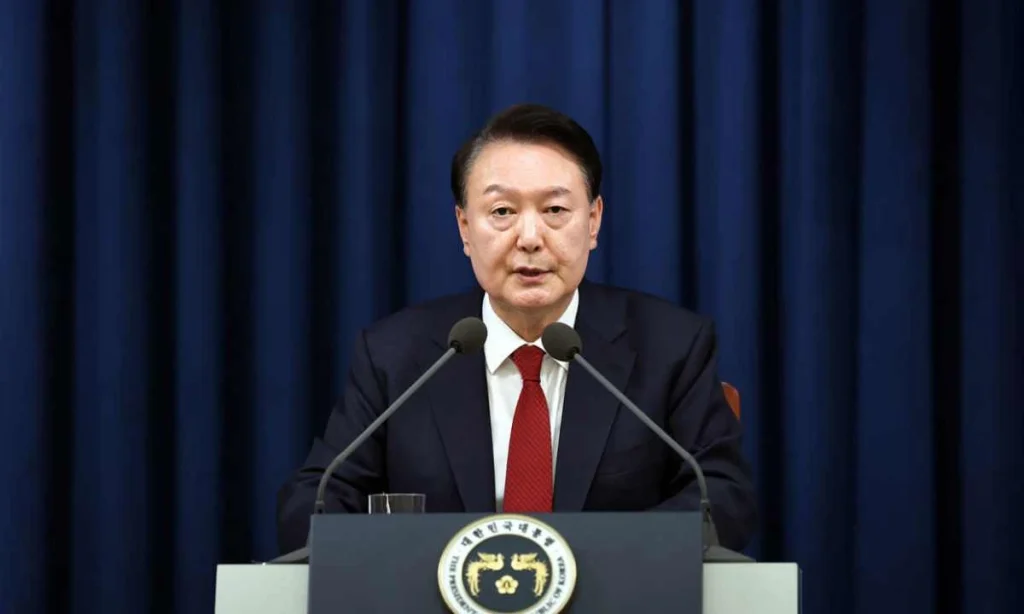South Korea Declares Emergency Martial Law | Citizens Struggle With Fear!
South Korean President Yoon Suk Yeol made an unexpected declaration that sent shockwaves across the nation. In a televised address, Yoon announced martial law, a move that many South Koreans had only read about in history books. This decision brought the country to a standstill and raised serious questions about the state of democracy in South Korea. Here’s a closer look at what happened and why it’s so significant.
A Rare Move in South Korean History
The last time martial law was declared in South Korea was in 1980. It was during a student- and labor-led uprising. For many, this announcement felt like a grim callback to a dark chapter in the country’s past. Yoon, who has served as president since 2022, justified the decision by accusing the opposition Democratic Party of “anti-state activities” and sympathizing with North Korea.
The opposition, which holds a majority in parliament, had recently filed motions to impeach key prosecutors and reject a government budget proposal. Yoon referred to these actions as “clear anti-state behavior aimed at inciting rebellion,” claiming they had “paralyzed state affairs.”

What Does Martial Law Mean?
Extraordinary measures are enforced when under the martial law. According to reports, the decree allows:
- Bans on Political Activities: All political and parliamentary activities are prohibited.
- Arrests Without Warrants: Law enforcement can arrest individuals without court approval.
- Restrictions on Public Expression: Specifically, spreading “fake news,” “manipulating public opinion,” and “subverting free democracy” are outlawed.
- Work Mandates: Strikes and work stoppages are forbidden. If an example is taken, doctors who were on strike were ordered to return to work within 48 hours.
- Military Involvement: Troops were deployed to enforce these measures, including an attempt to enter the National Assembly’s main hall.
These actions are designed to control dissent and maintain order. However, have left many questioning whether they undermine fundamental freedoms.
What Happens Next?
The situation remains fluid, with South Koreans waiting to see how this conflict between the executive and legislative branches will unfold. While Yoon has described martial law as necessary to “protect freedoms and safety” and “restore normalcy,” many view it as a threat to the country’s democratic foundation.
For now, all eyes are on how South Korea’s institutions will respond to this unprecedented challenge. Will the president step back, or will this escalate into a larger political confrontation? One thing is clear: the decision to declare martial law has left an indelible mark on South Korea’s modern history.
Conclusion
The declaration of martial law by South Korean President Yoon Suk Yeol has plunged the nation into a critical moment of uncertainty, testing the resilience of its democratic institutions. While Yoon defends his actions as necessary to maintain order, critics argue it undermines the freedoms the country has worked hard to secure. As South Koreans grapple with the implications, this episode serves as a stark reminder of the delicate balance between governance and civil liberties. The coming days will be pivotal in shaping South Korea’s political future and the strength of its democracy.
Also read,






